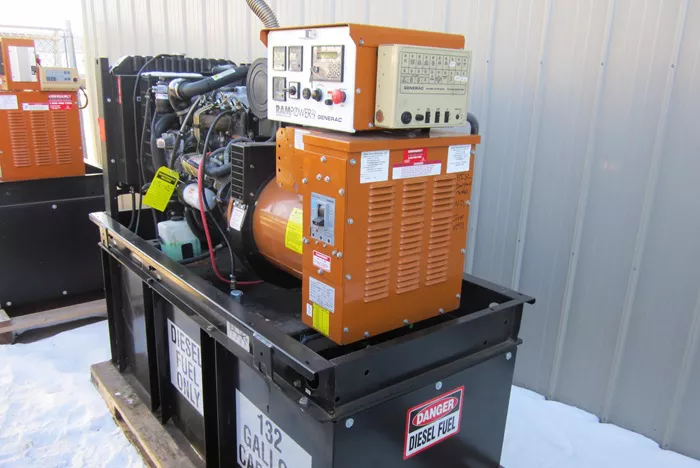Maintaining a diesel generator is crucial for ensuring its longevity, efficiency, and reliability. In this comprehensive guide, we’ll explore the importance of regular maintenance, the recommended service intervals, and the detailed steps involved in servicing a diesel generator. We’ll also discuss the benefits of adhering to a maintenance schedule and provide tips on how to implement a successful maintenance program.
1. Understanding the Importance of Diesel Generator Maintenance
The Role of Diesel Generators
Diesel generators are essential in providing backup power during outages, ensuring continuous operation in various industries, from healthcare to manufacturing. Their reliability can mean the difference between uninterrupted operations and significant downtime.
Consequences of Neglecting Maintenance
Neglecting regular maintenance can lead to several issues, including reduced efficiency, unexpected breakdowns, and costly repairs. Over time, the wear and tear on engine components, fuel system issues, and the accumulation of dirt and debris can compromise the generator’s performance.
Benefits of Regular Maintenance
Regular maintenance not only extends the lifespan of the generator but also ensures optimal performance, fuel efficiency, and safety. It helps in identifying and rectifying minor issues before they escalate into major problems, thereby saving time and money in the long run.
2. Recommended Service Intervals for Diesel Generators
Manufacturer’s Guidelines
The first point of reference for service intervals should be the manufacturer’s manual. Manufacturers typically provide specific recommendations based on the design and operational parameters of the generator.
General Service Interval Recommendations
Daily/Weekly Checks: Basic visual inspections, checking fluid levels, and ensuring the generator is clean.
Monthly Service: Running the generator under load, checking for leaks, inspecting belts and hoses, and testing the battery.
Quarterly Service: Comprehensive inspections, including fuel system checks, oil changes, and filter replacements.
Annual Service: A thorough inspection covering all aspects of the generator, including engine, alternator, control systems, and exhaust system.
Factors Influencing Service Frequency
Service intervals can vary based on several factors such as the generator’s usage frequency, operating environment, and the load it supports. Generators operating in harsh conditions or running continuously may require more frequent servicing.
3. Detailed Steps in Diesel Generator Maintenance
Daily/Weekly Maintenance Tasks
Visual Inspection: Check for any visible signs of wear, damage, or leaks.
Fluid Levels: Ensure that oil, coolant, and fuel levels are within the recommended range.
Battery Check: Inspect the battery terminals and connections for corrosion and ensure the battery is charged.
Monthly Maintenance Tasks
Load Test: Run the generator under load to ensure it operates correctly and check for any unusual noises or vibrations.
Belt and Hose Inspection: Inspect belts and hoses for signs of wear and replace them if necessary.
Exhaust System Check: Ensure that the exhaust system is free from blockages and leaks.
Quarterly Maintenance Tasks
Oil and Filter Change: Replace the engine oil and oil filters to maintain lubrication and prevent engine wear.
Fuel System Inspection: Check the fuel lines, filters, and injectors for any signs of wear or contamination.
Coolant System Check: Inspect the coolant system for leaks and ensure the coolant is at the correct concentration.
Annual Maintenance Tasks
Comprehensive Inspection: Perform a detailed inspection of the engine, alternator, control systems, and exhaust system.
Load Bank Testing: Conduct a load bank test to ensure the generator can handle its full rated load.
Component Replacement: Replace any components showing signs of significant wear or nearing the end of their service life.
see also: What Is The Working Principle Of Diesel Generator
4. Implementing a Successful Maintenance Program
Creating a Maintenance Schedule
Develop a detailed maintenance schedule that outlines daily, weekly, monthly, quarterly, and annual tasks. This schedule should be tailored to the specific requirements of the generator and its operating environment.
Training and Documentation
Ensure that personnel responsible for maintenance are adequately trained and have access to the necessary tools and documentation. Keep detailed records of all maintenance activities to track the generator’s performance and identify any recurring issues.
Partnering with Professionals
For complex maintenance tasks, consider partnering with a professional service provider. They can offer specialized expertise and ensure that the generator is maintained according to industry standards.
5. Conclusion
Regular maintenance of a diesel generator is essential for ensuring its reliability, efficiency, and longevity. By adhering to the recommended service intervals and performing detailed inspections and maintenance tasks, you can prevent unexpected breakdowns, reduce repair costs, and extend the lifespan of your generator. Implementing a well-structured maintenance program and partnering with professionals when necessary will ensure that your diesel generator continues to provide reliable power for years to come.
In this guide, we’ve covered the importance of diesel generator maintenance, the recommended service intervals, and the detailed steps involved in servicing a generator. By following these guidelines, you can ensure that your diesel generator remains in optimal condition, ready to provide reliable power whenever it is needed.
Related topics:
- France Sends 41 Power Generators To Kharkiv And Chernihiv Amidst Energy Infrastructure Damage
- Diesel VS Petrol Generators: Which Is Better For Your Needs?
- The Role Of Solar Generators In EV Charging

